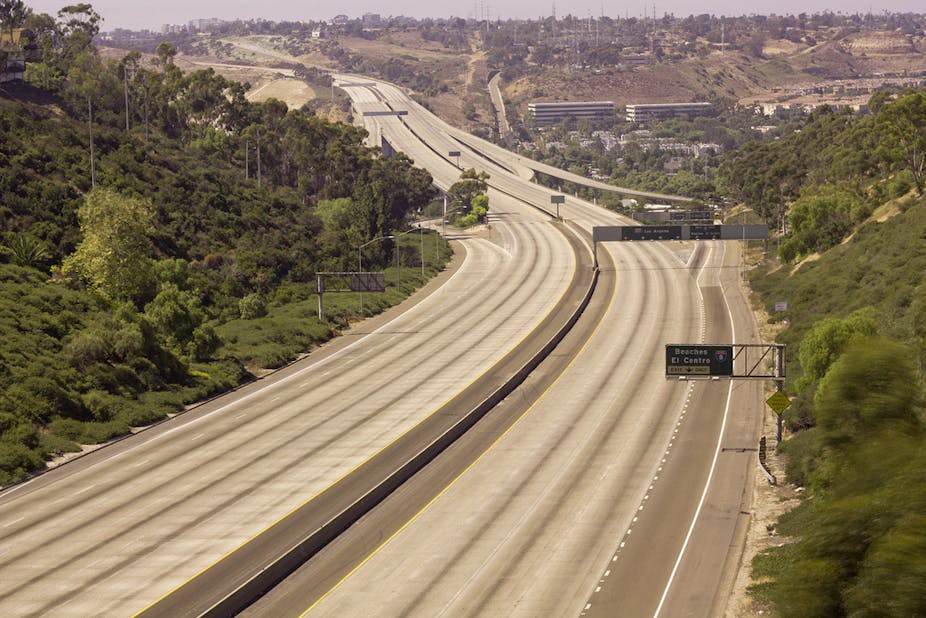Car travel is becoming a victim of its own success. If we in the West had only kept cars for ourselves, automobility could have survived much longer. But we shared them with the rest of the world, and now car travel is doomed.
In 1950 world car numbers were a little over 50 million, with around 80% of them in North America. Today, cars (taken here as including all light four-wheel vehicles for personal travel) number over 800 million globally, and China has overtaken the US as the leading purchaser of new cars.
Car ownership in OECD countries is typically 400 or more per 1000 persons. In Australia it’s over 650. Despite the rising rate of car sales in China — and to a lesser extent India and other major industralising countries — ownership there is still comparatively low (typically 30 or fewer per 1000 people). But aspirations for ownership are high.
Globally, cars seem set for a bright future; experts talk of up to two billion cars on the world’s rapidly expanding highway networks by 2030. If all the world’s projected 9.3 billion people in 2050 enjoyed the present Australian rate of ownership, there would be over six billion cars.
But it won’t happen — not on this planet. We face a number of interconnected environmental and resource problems, but the two that most obviously relate to transport are global oil depletion and global climate change. Together, they’ll spell the end of automobility.
Globally, annual oil production may already be near its peak, with little further increase expected. More importantly, on a per capita basis, oil consumption peaked in 1978, and has fallen 20% since then.
We no longer have the twin safety valves that helped ease the situation in the 1980s and 1990s — the progressive substitution of other fuels for oil in power plants, and the collapse of the USSR, which cut that region’s oil consumption by half. Intensified international competition for remaining oil will not be a recipe for world harmony.
As for global warming, by any reckoning we in the West have used our quota of climate-change-causing greenhouse gas emissions (and the same is probably true for oil).
Many will agree that oil depletion and global warming are serious problems, but still argue that one or more of a variety of technical fixes will overcome them. Suggestions include liquid fuels derived from biomass, plug-in hybrid electric vehicles (the current favourite), or major gains in vehicle efficiency.
Though there are plans for “second-generation” biofuels, all biomass fuels are presently derived from foodstuffs and have limited expansion potential in a food-short world. Plug-in hybrids would also save oil, but would increase CO₂ emissions in most countries (including Australia) where electricity is primarily produced from fossil fuels. Measurable gains in vehicle efficiency are slow in coming: the efficiency of present Ford vehicles in the US is no better than that of the model-T Ford.
Major transport change is already occurring in Australia. Over the past decade, public transport patronage has grown strongly in our cities, while car travel in terms of passenger-kilometres per person has been falling since at least 2005. It has also dropped in a number of other high-mobility OECD countries, including the US.
These changes, although welcome, are too small and are coming far too slowly. We can ignore climate change, perhaps for another decade or so – that is essentially our present, grown-up, response. But oil shortages cannot be ignored, and are likely to lead the changes that will spell the end of the global car dream.

